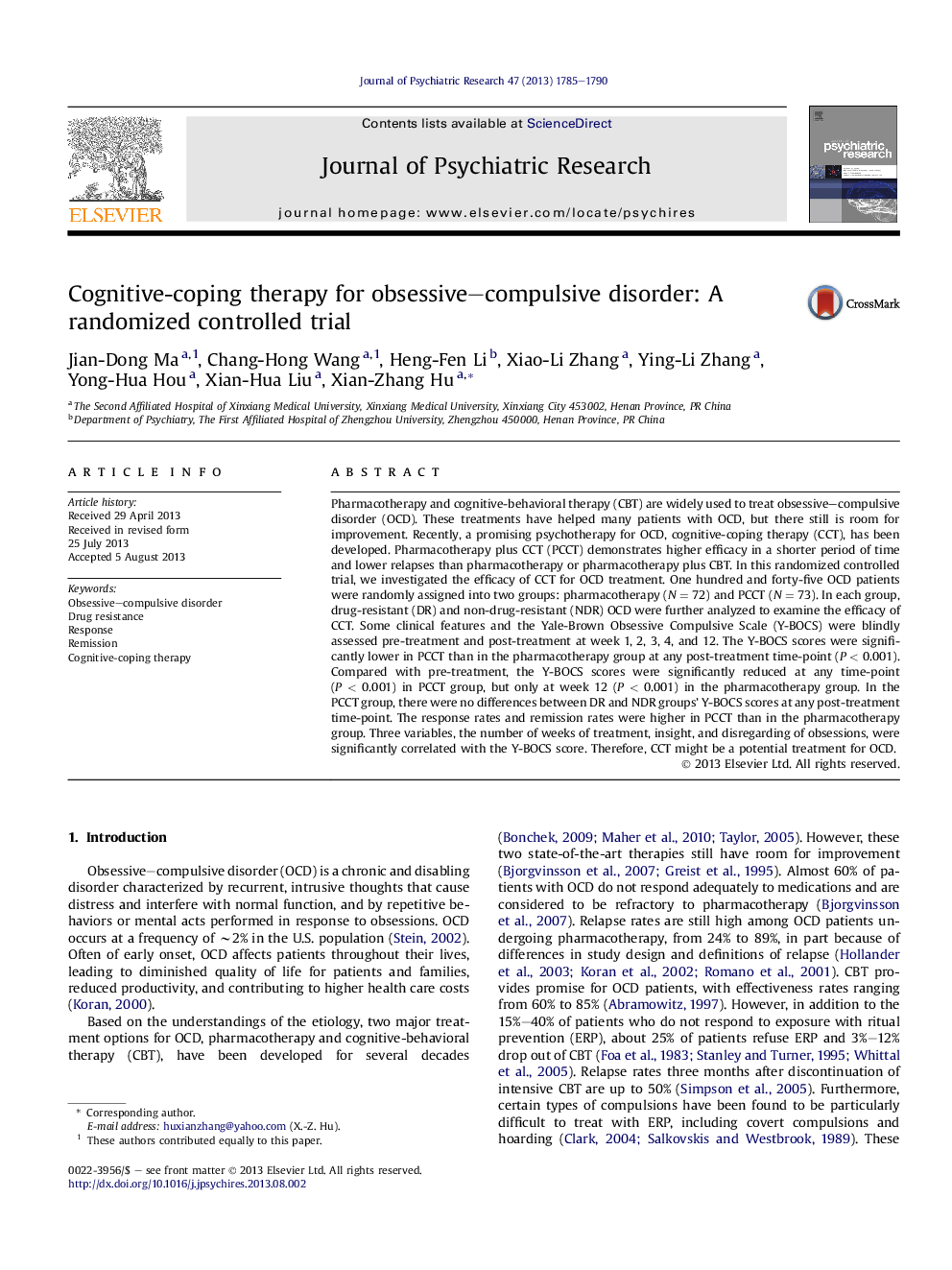| Article ID | Journal | Published Year | Pages | File Type |
|---|---|---|---|---|
| 10302478 | Journal of Psychiatric Research | 2013 | 6 Pages |
Abstract
Pharmacotherapy and cognitive-behavioral therapy (CBT) are widely used to treat obsessive-compulsive disorder (OCD). These treatments have helped many patients with OCD, but there still is room for improvement. Recently, a promising psychotherapy for OCD, cognitive-coping therapy (CCT), has been developed. Pharmacotherapy plus CCT (PCCT) demonstrates higher efficacy in a shorter period of time and lower relapses than pharmacotherapy or pharmacotherapy plus CBT. In this randomized controlled trial, we investigated the efficacy of CCT for OCD treatment. One hundred and forty-five OCD patients were randomly assigned into two groups: pharmacotherapy (NÂ =Â 72) and PCCT (NÂ =Â 73). In each group, drug-resistant (DR) and non-drug-resistant (NDR) OCD were further analyzed to examine the efficacy of CCT. Some clinical features and the Yale-Brown Obsessive Compulsive Scale (Y-BOCS) were blindly assessed pre-treatment and post-treatment at week 1, 2, 3, 4, and 12. The Y-BOCS scores were significantly lower in PCCT than in the pharmacotherapy group at any post-treatment time-point (PÂ <Â 0.001). Compared with pre-treatment, the Y-BOCS scores were significantly reduced at any time-point (PÂ <Â 0.001) in PCCT group, but only at week 12 (PÂ <Â 0.001) in the pharmacotherapy group. In the PCCT group, there were no differences between DR and NDR groups' Y-BOCS scores at any post-treatment time-point. The response rates and remission rates were higher in PCCT than in the pharmacotherapy group. Three variables, the number of weeks of treatment, insight, and disregarding of obsessions, were significantly correlated with the Y-BOCS score. Therefore, CCT might be a potential treatment for OCD.
Related Topics
Life Sciences
Neuroscience
Biological Psychiatry
Authors
Jian-Dong Ma, Chang-Hong Wang, Heng-Fen Li, Xiao-Li Zhang, Ying-Li Zhang, Yong-Hua Hou, Xian-Hua Liu, Xian-Zhang Hu,
